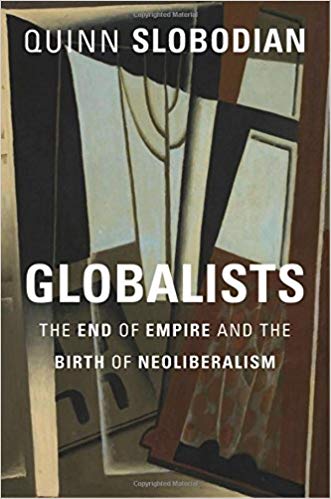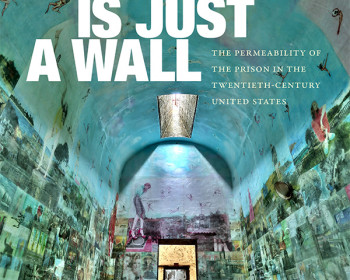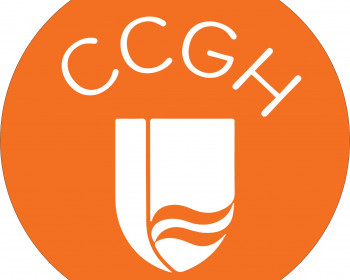Catching up with Quinn Slobodian BA ’00
Open gallery

What did you study and what organizations were you involved in at LC?
I was a history major at LC but rather than European history (which is what I ended up specializing in) I focused on East Asian history, specifically Japanese and Japanese immigration history. I was lucky enough to be there right when Professor Andrew Bernstein arrived and he was a great mentor. I wrote a bit for the Pioneer Log, briefly managed the Platteau, a student-run art space, and played soccer with friends on lower campus. However, my main activity was working at KLC Radio, where, funny enough, I worked alongside another future history professor, my good friend Andrew Daily, now at University of Memphis.
What did you do between graduating LC and attending graduate school? What were some of the jobs/experiences that you had?
After graduate school, I worked for a nonprofit organization in Victoria, British Columbia (where I’m from) that specialized in community mapping and community planning, making links from neighborhoods and ordinary people’s lives to the planning worlds of City Hall and bureaucracy. It was great work and I considered graduate school for Community and Regional Planning at the University of British Columbia but the draw of books ended up being too great and, after a year and a half or so of “real” work, I returned to university.
What did you study in graduate school and where did you attend? Why did you decide to pursue what you did?
I studied modern European (specifically modern German) history at New York University. I spent some time in Berlin after graduation and was fascinated by the city. My original proposal (which, like many of these things, changed almost immediately) was to compare the role of informal economies and black markets in knitting back together the urban fabric of Berlin after the Second World War and then after the fall of the Berlin Wall in 1989.
I read that your research focuses heavily on activism and political action in modern Germany. Could you explain why you were drawn to these topics?
The emphasis on activism came out of my own activism during graduate school. Like many of my cohort, I was politicized by the U.S. invasion of Iraq and joined hundreds of thousands of others in some of the biggest demonstrations the world has ever seen to stop the war. I also worked for the graduate student union at NYU and organized with the United Auto Workers (UAW). The mobilization against the war did not achieve its immediate goal and, as an historian, I was curious how dynamics of solidarity and resistance played out in the past—hence the turn to the internationalism, Third-Worldism, and antiwar activism of the West German New Left in the 1960s and 1970s.
You’ve written three books, with the most recent publication being Globalists: The End of Empire and the Birth of Neoliberalism. The book has been described as the first intellectual history of neoliberal globalism. What inspired you to study the origins of neoliberalism?
As I was researching left-wing internationalism in the 1960s, I was also attentive to its right-wing equivalent. I noticed that the group of intellectuals, think tanks, and politicians we call the neoliberal movement (which has its roots as far back as the 1930s) was rather more attentive to the global context than scholars had thought. I realized the opposition to social democracy and the welfare state was not just a domestic struggle for neoliberals but one they saw in global terms. The dissolution of empires from the end of the Second World War into the 1960s presented both an opportunity and a threat to them—the chance to advocate for a supranational system that would lock in capital rights and free trade, but also the danger of the redistributionist project based on principles of social justice being taken to the next level. This is the clash I track in the book, from the end of the Habsburg Empire to the founding of the World Trade Organization in 1995.
Did you find that the origins of neoliberalism differed from the origins of other political and moral philosophies?
Every political philosophy has its own story, but I think it’s fair to say that they all come out of moments of class conflict and power struggle. My intention was to show how neoliberalism was both an intellectual project, pursued through books, talks, pamphlets and conferences, as well as a class project, enabled through alliances with global groups of businesspeople, pursued through formal international institutions, and given a platform by self-interested “individuals of means” (as Howard Schultz has recently requested we refer to billionaires).
Do you have any new projects in the works?
My new project is definitely in the works. It’s a kind of sequel to Globalists, following the cohort of thinkers and politicians who rejected the idea of a supranational architecture of institutions to protect capitalism and opted instead for exit, secession, escape, opting out, and disengaging, from libertarian homelands in South Africa to the fetishization of city-states like Singapore to Brexit and the alternative globalization of the current wave of the far right. Parts of the project have appeared as op-eds in the New York Times, New Statesman, and Foreign Policy.
Lastly, what sorts of things do you do in your free time?
I’m the parent of a young child and an inhabitant of New England so the rotating seasonal roster of apples, pumpkins, snowmen, baby farm animals, and beaches occupies much of my time. My family and I also spend as much time as we can in cities we love, including Berlin, Hong Kong, and Montreal.
Interview by Eva Love ’19
History is located in Miller Center on the Undergraduate Campus.
MSC: 41
email history@lclark.edu
voice 503-768-7405
fax 503-768-7418
Chair Reiko Hillyer
Administrative Coordinator Amy Baskin
History
Lewis & Clark
615 S. Palatine Hill Road MSC 41
Portland OR 97219

